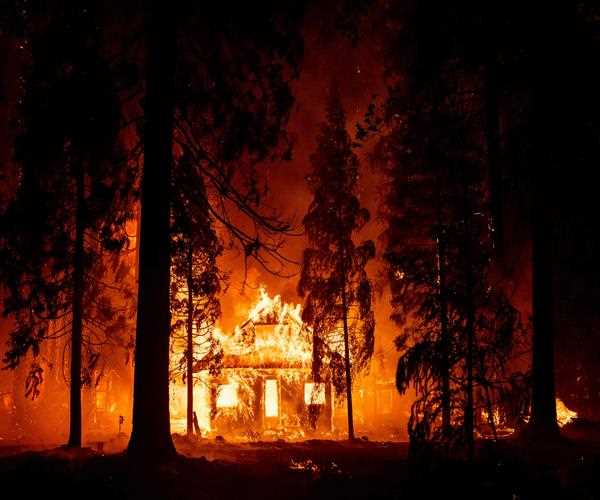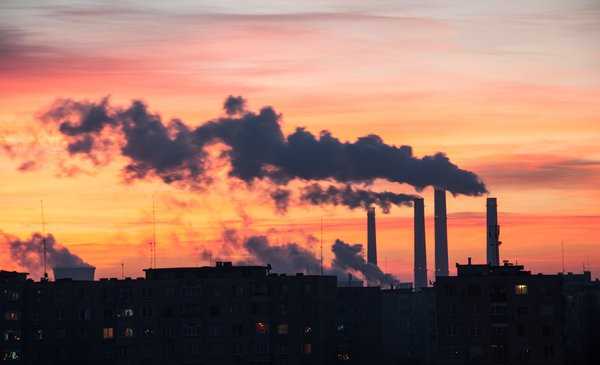
03-Aug-2023 , Updated on 8/3/2023 9:09:51 PM
Can humans survive the heat catastrophe
Highlights
- The average global temperature has increased by about 1 degree Celsius since the pre-industrial era, and is projected to increase by another 2-4 degrees Celsius by the end of the century.
- This warming is already having a significant impact on human health. Heat waves are becoming more frequent and intense, and are leading to more deaths and illnesses.
- The heat catastrophe is a real threat to human survival. If global warming continues unchecked, the Earth could become uninhabitable for humans.
- There are things we can do to mitigate the heat catastrophe. We can reduce our emissions of greenhouse gases, and adapt to the changes that are already happening.
- But we need to act now. The longer we wait, the more difficult it will be to avoid the worst effects of the heat catastrophe.
The Earth is getting hotter. That's a scientific fact. And as the planet warms, so does the risk of extreme heat events . These heat waves are becoming more frequent, more intense, and lasting longer.
The consequences of extreme heat are already being felt around the world. In 2019, a heat wave in Europe killed more than 70,000 people. And in 2021, a heat wave in the Pacific Northwest killed more than 100 people.
As the planet continues to warm, these heat waves are only going to get worse. And that raises the question-
Can humans survive the heat catastrophe ?
The answer is not simple. On the one hand, humans are resilient creatures. We've adapted to live in a wide range of climates, from the frigid Arctic to the scorching Sahara.
But on the other hand, there are limits to our resilience. When temperatures get too high, our bodies start to break down. We can't sweat enough to cool down, and our organs start to overheat.
The heat catastrophe is an alarming manifestation of the broader climate crisis caused by human activities, primarily the emission of greenhouse gases such as carbon dioxide. As these gases accumulate in the atmosphere, they trap heat, leading to a gradual increase in global temperatures. This warming trend results in more frequent and intense heat waves, longer periods of high temperatures, and shifts in weather patterns.
So what does this mean for the future? If we don't take action to reduce greenhouse gas emissions , the Earth is likely to warm by 2 degrees Celsius or more by the end of the century. At that point, heat waves will be commonplace in many parts of the world.

In some places, the heat will be so extreme that it will be impossible for humans to live there. For example, the Amazon rainforest could become too hot for trees to survive, which would have a devastating impact on the region's ecosystem.
Even in places where it is still possible to live, the heat will make life very difficult. People will have to work harder to stay cool, and there will be an increased risk of heat-related illnesses and deaths.
We'll have to adapt our lifestyles and infrastructure to the new reality of a hotter world. And we'll need to take aggressive action to reduce greenhouse gas emissions so that we don't warm the planet beyond the point of no return.
Challenges to Human Survival
- Health Impacts- The primary concern in a heat catastrophe is the detrimental impact on human health. Heat-related illnesses can overwhelm healthcare systems, especially in regions unaccustomed to extreme temperatures. Mortality rates may rise, particularly in areas lacking proper infrastructure and resources to cope with such conditions.
- Agricultural Disruption- Rising temperatures can disrupt agriculture, affecting food production and availability. Heat stress on crops can lead to reduced yields, changing the types of crops that can be cultivated in certain regions. This, in turn, can lead to food shortages and economic instability.
- Water Scarcity- High temperatures can accelerate evaporation rates, contributing to water scarcity in many regions. Decreased water availability can impact daily life, from drinking water supplies to irrigation for agriculture.
- Economic Disruptions- The heat catastrophe can have far-reaching economic consequences. Industries reliant on outdoor labor, such as construction and agriculture, may struggle to operate effectively, leading to job losses and economic downturns. Additionally, damage to infrastructure from heat-related events can be costly to repair.
- Migration and Displacement- As regions become uninhabitable due to extreme heat, sea-level rise, or other climate-related factors, there is a potential for mass migration and displacement. This movement of people can lead to conflicts, strained resources in receiving areas, and social upheaval.
Here are some of the ways that humans can adapt to the heat catastrophe-
- We can build more heat-resilient infrastructure- This includes things like heat-resistant buildings, cooling centers, and better public transportation.
- We can change our lifestyles- This includes things like working from home during heat waves, wearing lighter clothing, and drinking more fluids.
- We can invest in research into heat-related health problems- This will help us to better understand the risks of heat exposure and develop new treatments.
It is important to remember that the heat catastrophe is not inevitable. If we take action now, we can still avoid the worst-case scenario. But we need to act quickly and decisively.
The future of humanity depends on it.
In addition to the above, here are some other ways that humans can help to mitigate the effects of the heat catastrophe-
- Plant trees- Trees help to cool the air and provide shade.
- Reduce our reliance on fossil fuels- Burning fossil fuels releases greenhouse gases into the atmosphere, which contribute to global warming.
- Eat less meat- Raising livestock is a major source of greenhouse gas emissions.
- Recycle and compost- This helps to reduce the amount of waste that goes to landfills, which produces methane, a potent greenhouse gas.
By taking these steps, we can help to slow the pace of climate change and make the world a more livable place for future generations.

SEO and Content Writer
I am Drishan vig. I used to write blogs, articles, and stories in a way that entices the audience. I assure you that consistency, style, and tone must be met while writing the content. Working with the clients like bfc, varthana, ITC hotels, indusind, mumpa, mollydolly etc. has made me realized that writing content is not enough but doing seo is the first thing for it.
Join Our Newsletter
Subscribe to our newsletter to receive emails about new views posts, releases and updates.
Copyright 2010 - 2026 MindStick Software Pvt. Ltd. All Rights Reserved Privacy Policy | Terms & Conditions | Cookie Policy